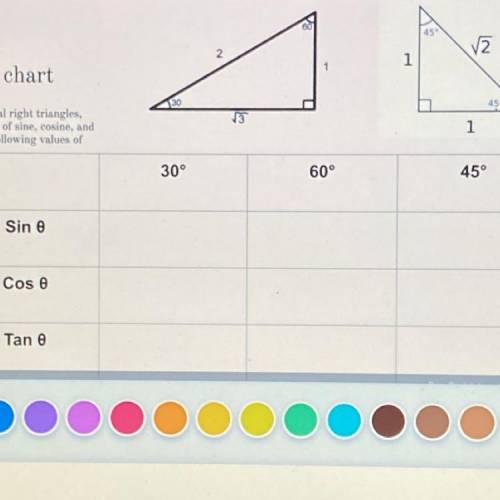
Answers: 2


Another question on Mathematics

Mathematics, 20.06.2019 18:04
Carly bought a new house for $125,000. the value of the house appreciates approximately 3.5% each year. what will be the value of the house after 10 years?
Answers: 1

Mathematics, 21.06.2019 15:30
The average hourly earnings for a construction worker is projected to be $24.50 in 2012. jason wants to join the construction work force after he graduates in 2012. his friend tells him that average hourly earnings for construction workers will rise by 2% from 2009 to 2012. based on the data below, assuming that the projected hourly earnings are correct, is jason’s friend’s statement accurate? construction industry - average hourly earnings, 2000-2009 a. his friend’s statement is accurate. the average hourly earnings will increase by 2%. b. his friend’s statement is not accurate. the percent increase will be more than 2% c. his friend’s statement is not accurate. the percent increase will be less than 2% d. his friend’s statement is not accurate. the average hourly earnings will decrease
Answers: 3


Mathematics, 22.06.2019 02:00
Study published in the journal of personality and individual differences found that adults with adhd displayed more creative achievement than those who didn't have the disorder. "for the same reason that adhd might create problems, like distraction, it can also allow an openness to new ideas," says holly white, assistant professor of cognitive psychology. "not being completely focused on a task lets the mind make associations that might not have happened otherwise." white and priti shah at the university of michigan gave 60 college students – half of them with adhd – a series of tests measuring creativity across 10 domains. the adhd group scored higher across the board. the adhd group showed more of a preference for brainstorming and generating ideas than the non-adhd group, which preferred refining and clarifying ideas. the adhd status of the participants was established by asking whether the individual had ever been clinically diagnosed with adhd/add. the tests of creativity were pencil-and-paper tasks administered in a laboratory setting. each of the ten scales was comprised of multiple questions, the scores on which were summed (e.g., writing creativity: "how many words can you make from the letters in the word 'psychology' invention creativity: "write down as many uses for a paper clip that you can think of.") this procedure does allow for a participant to be scored as showing no creativity under these conditions. a) state the research question in plain language (i wonder if is related to (1 point) b) state the null hypothesis (1 point) c) state the research hypothesis (1 point) d) is the research hypothesis directional or non-directional (1 point) e) name the predictor / independent variable f) give the operational definition of the predictor / independent variable g) evaluate the construct validity of the predictor / independent variable. (face, procedure, method-match) h) name the outcome / dependent variable i) give the operational definition of the outcome / dependent variable. j) evaluate the construct validity of the outcome / dependent variable. (face, procedure, method-match)
Answers: 1
You know the right answer?
Just help with the first triangle. Thank you.
...
...
Questions


Mathematics, 19.09.2019 14:00






History, 19.09.2019 14:00


Mathematics, 19.09.2019 14:00

Social Studies, 19.09.2019 14:00






Spanish, 19.09.2019 14:00






